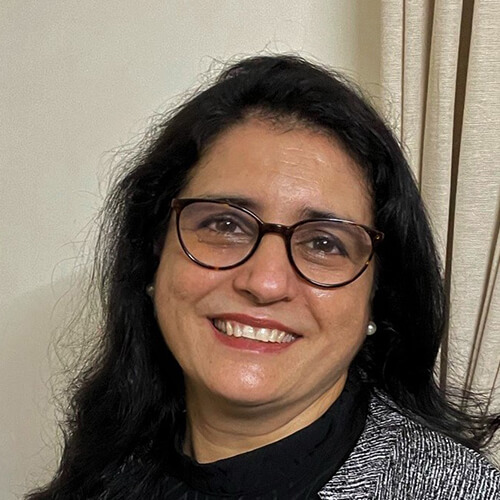Farida Tampal
India India
About
Farida is the State Director of WWF-India’s Hyderabad Office, (covering both Andhra Pradesh and Telangana), and her journey has given her encounters and experiences with landscapes and people across the country.
In 1992, with a Master’s degree in Ecology, Farida joined the Centre for Herpetology at the Madras Crocodile Bank Trust as a Research Associate in Captive Breeding of Venomous snakes. She then joined WWF-India West Bengal State Office as the Senior Project Officer. For 8 years, she was engaged in wildlife conservation and research in the Eastern Himalayan and Sunderbans Landscape, both priority areas under WWF. In 2004, she took over the Andhra Pradesh office as the State Director, continuing her interest in Herpetology (study of amphibians and reptiles) by including it as a study component in the numerous biodiversity projects she has initiated in erstwhile Andhra Pradesh.
Farida also represented WWF-India on many National and State level steering committees like EGREE (East Godavari River Estuarine Ecosystem) Foundation, Biodiversity Museum Committee, State CAMPA (Compensatory Afforestation Management Planning Authority), BIOSAP (Biodiversity Society of Andhra Pradesh), Tree Protection Committee (under WALTA Act), Govt of Telangana, ZAPAT (Zoos and Parks Authority of Telangana) and CII’s Green Landscapes and Green Education Committee, Human-Animal Conflict mitigation Steering Committees for Andhra Pradesh and also Telangana, etc. She is also on the Core Committee of the Telangana Biodiversity Board and Expert Committee of the National Biodiversity Authority.
She conducts trainings for the All-India Service and State Service Officers and other Government employees on Biodiversity, Wildlife Conservation, Climate Change and Wildlife Protection Act (1972). Similarly, she has mentored several youth groups and individuals who joined WWF as interns to pursue wildlife biology as a career—it is her firm belief that youth is synonymous with innovation and creativity.
During her stint at West Bengal and also presently, she has been involved in ensuring sustainable livelihoods for women communities in the forest areas. She has written and spoken about women and environment where she has linked environmental degradation with women rights issues.
She has also led the Young Climate Savers programme, an initiative of WWF-India that was started in 2008. The programme worked with 200 schools across Andhra Pradesh and impacted more than 200000 students and made them aware of the imminent threats due to climate change and how this can impact their lives.
One of her pioneering initiatives has been the introduction of renewable energy to improve water management in the forest areas to benefit wildlife as well as local tribal communities. This is the first of its kind, receiving national recognition by bodies like National Tiger Conservation Authority (NTCA) and is now being replicated in other states. As Farida says, you must ‘Walk the Talk’ to make things happen.

